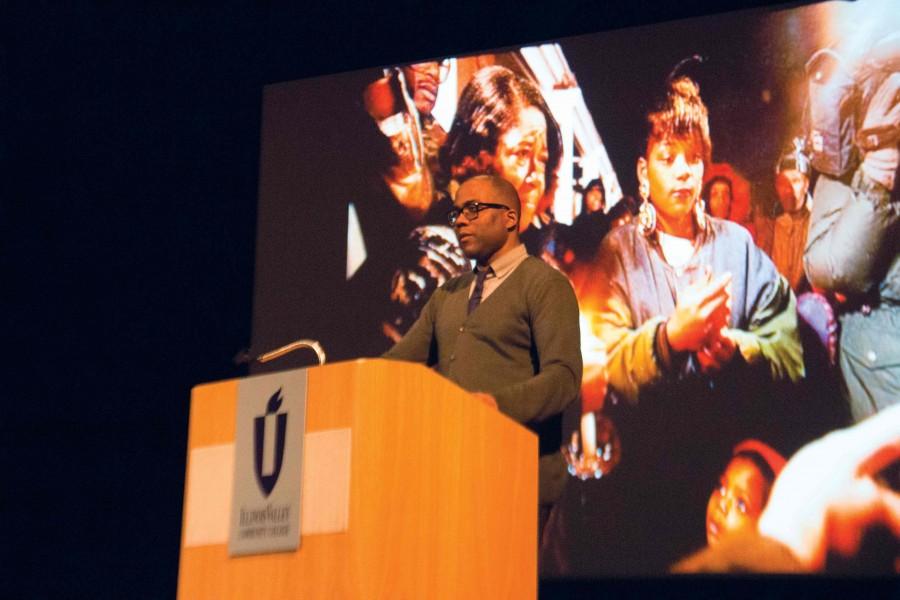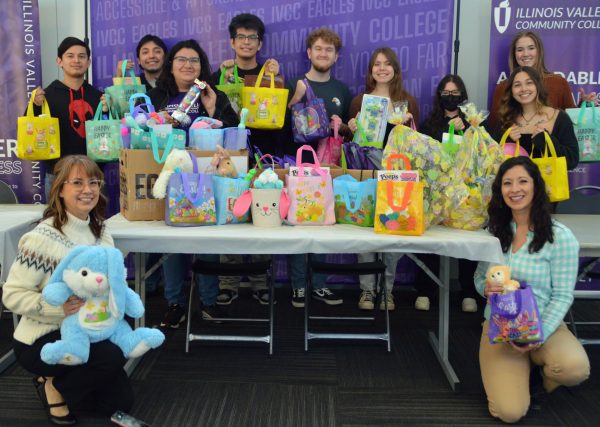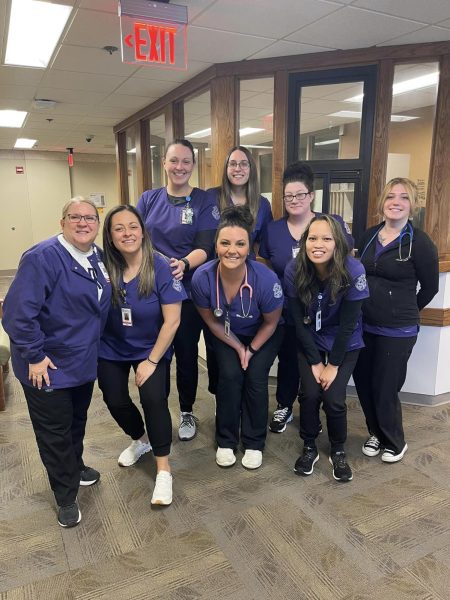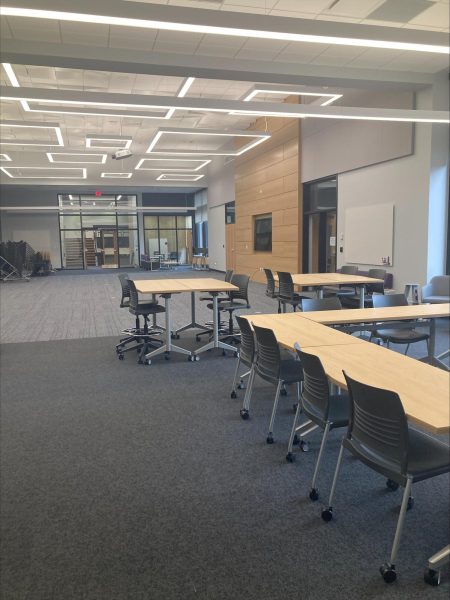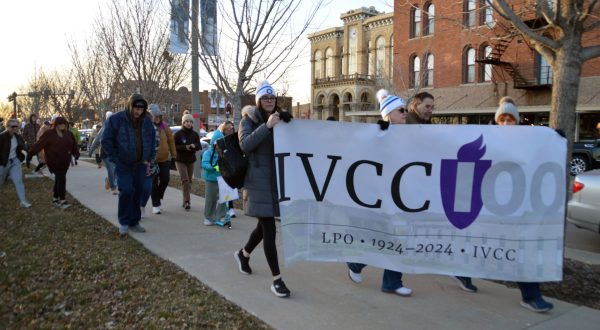Jimmie Briggs presents, gives insight, courage
Jimmie Briggs visited IVCC on March 16 as a keynote speaker for Women’s History Month. Briggs travels the country spreading awareness about domestic violence, rape, sexual harassment, and psychological abuse in different cultures. Briggs’ visit included a presentation in the Cultural Center as well as group “break-out” sessions.
IVCC welcomed Jimmie Briggs, nationally recognized speaker and human rights activist, as a keynote speaker for Women’s History Month at IVCC on March 16.
After being inspired by British actress Emma Watson’s HeForShe speech, student Corey Winchel was determined to find a way to bring the gender equality message to the hearts and minds of the students of IVCC. With the help of Professors Kimberly Radek, director of SAGE (Students Advocating Gender Equality), and Amanda Cook-Fesperman of the Diversity Team, IVCC was able to find a speaker who exemplified the message Winchel wanted to get across.
Students who gathered in IVCC’s Cultural Center left that day having heard from Briggs what it was like to witness sexual violence against women firsthand. Briggs presented pictures from his travels to the Democratic Republic of Congo, Afghanistan and Haiti, which vividly exemplified the merciless cases of the types of violence women face all over the world, even right here in the Illinois Valley.
Briggs explained how different cultures deal with domestic violence, rape, sexual harassment, psychological abuse and many other forms of abuse. He gave many specific examples of victims of abuse, who he met amidst his treacherous endeavors.
Briggs also spoke about his journeys to war zones and seeing the effects on child soldiers and war-affected children. “It opened my eyes, seeing these young women forced to be soldiers during the day and used for the bodies at night. As a journalist you are taught not to feel emotion but seeing these things I knew I could never be a journalist again,” Briggs explained.
Students were invited to “break-out” sessions with Briggs, which gave them the opportunity to converse with him on a more intimate level. “Being able to intimately engage with young men and get a personal connection is key to leaving an impression,” Briggs said.
These sessions took place in small groups and concentrated on gender-based violence, rather than just violence against women.
He revealed ways in which both men and women experience violence whether it is mentally, emotionally, physically or verbally on the streets, at home, at school or in the workplace.
Briggs left his audiences, big and small, with ideas on how to decrease the amount of people afflicted by gender-based violence both locally, nationally and universally. He recommended taking action with male ally groups, bystander intervention techniques and victim and survivor support.
The message didn’t end with Briggs’ speech according to Winchel: “We plan to continue to find ways to raise awareness and bring the issue of gender equality to the forefront of the Illinois Valley area. It is an issue that is still in the dark and it’s our job to bring it into the light so we can find solutions to the problem,” he said.

